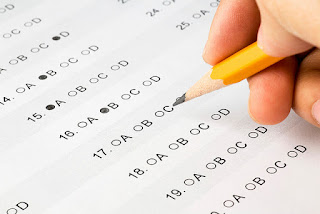FINAL POST
Reflection
CC Photo Credit: Moyan Brenn from Flickr
This class has absolutely been a growing experience for me. I can easily say that I have never spent more time researching, tagging, hyperlinking, and interacting with online websites or tools in my life. It has been fun yet challenging. I really did not realize how had been accomplished in the last six weeks until I put it all together in the teacher webpage/e-portfolio. I am really amazed that this is only an introductory class. I feel like we did so much and in depth work that it is difficult to imagine that there is more to come but, I am ready for that challenge also. The collaborative projects, the instructional wiki and collaborative lesson plan, were extra interesting as this is the first time I had successfully completed a group project through an online class. The communication for these projects was relatively simple once we had agreed on how we would stay in touch. Texting seemed to be the most effective as we pretty much always had our phones handy. I believe that through everything in this class, I am ready to use technology efficient and effectively in the classroom. I now know how to create an evaluation rubric from scratch and create a functional lesson plan that fulfills state education standards while engaging students. I have a deeper understanding of learning theories and methods of utilizing those theories to communicate information or to help students discover information for themselves. I am now equipped with an online bookmarking account (Delicious) that I did not even realize that I needed but am now not sure how I navigated without. I now know that there are so many resources to support me as a teacher no matter what obstacle I might come up against. I look forward to being able to reference knowledge gained in this class to help students with special needs, like hearing impairments, dyslexia, or even English language learners to feel comfortable and excited to learn in my class. I truly appreciated the timely and constructive feedback that I received throughout the class. I only wish that I could have figured out how to interact during the virtual office hours, but this is probably my short coming. The biggest challenge for me with this class, aside from my own time-management, has been handling the APA citation formatting. This is the first class that I have ever taken that has not used the MLA format. I learned MLA in the first research paper that I completed in high school and have not used any other citation method since. I know that I should be more flexible and am sure that I will get the hang of it eventually. However, I do not see that happening with this post. Thank you professor Coleman for your patience and help throughout this class.
Resources:
Maloy, Robert, Verock-O’Loughlin,Ruth-Ellen, Edwards, Sharon A.,
and Woolf, Beverly Park (2013). Transforming Learning with New
Technologies. 2nd Edition. Boston, MA: Pearson Education, Inc.
Teacher Website/e-portfolio and Delicious account created by April Bogar 2016


